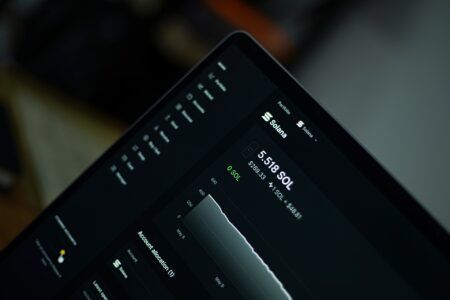It seems that Japan’s financial regulatory body, the Financial Services Agency (FSA) has finally ended its self-imposed moratorium on granting licenses to new cryptoasset exchanges.
Over 2018, they froze the granting of new licenses to exchanges. There are over 100 new license applications, although since the beginning of this year they have only granted 3 licenses to new exchanges.
3) @fsa_JAPAN notified @BTCTN that 110 #cryptoexchanges in Japan are seeking regulatory approval to enter the space. There are currently 19 registered #crypto exchange operators. 3 of them (@coincheckjp, #Rakutenwallet and @DeCurret) were approved in the past year.
— KYT (@KnowYourToken) July 12, 2019
Japan made headlines in 2017 by being one of the first countries to offer clear regulatory guidelines for cryptocurrencies. This creation of a positive regulatory climate took place around the same time that China, S. Korea, and other nations were enacting restrictive regulations on cryptoassets, and initial coin offerings (ICOs).
This made Japan one of the largest cryptocurrency markets worldwide. When Japan legalized cryptocurrencies and issued the guidelines, it required all exchanges to register with the FSA, except for 16 that were “grandfathered-in” because they were operating before the new rules were put in place.
Many businesses flocked to Japan for its crypto-friendly legislation, but soon after, Coincheck a popular Japanese exchange, was hacked in possibly the largest scale cryptocurrency hack to date, with $530 million worth of cryptocurrency pilfered. In response to the hack, Japan’s FSA stopped granting new licenses to exchanges for all of 2018.
Japan FSA expands crackdown on crypto:
– temporarily shuts 2 exchanges: FSHO, bit station
– penalizes 4: GMO, Zaif, Bicrements, Mr. exchange
– license applications withdrawn at 2: bitExpress, 1 more
– Coincheck can't return $$ until more audits
– Next big deadline for all: Mar 22— Yuji Nakamura (@ynakamura56) March 8, 2018
During the licensing hiatus, the FSA examined the security practices of many existing exchanges. Since the beginning of this year, Japan has been extremely cautious in granting new licenses. The exchanges themselves also formed two self-regulatory trade associations in response to the hack.
Another repercussion of the Coincheck hack was that the FSA called for a ban of privacy coins like Monero, Dash, and Z-Cash, in an effort to combat money laundering and other financial crimes. The FSA also carried out onsite inspections of cryptoasset exchanges and performed security audits.
Japan now seems confident that everything is in order and that they have they right policies in place to move forward with granting licenses to new exchanges.
There are over 100 new exchanges in the various stages of the licensing and compliance process. Japan may once again join Malta, Switzerland, and Singapore as one of the most crypto-friendly regulatory jurisdictions in the world.








